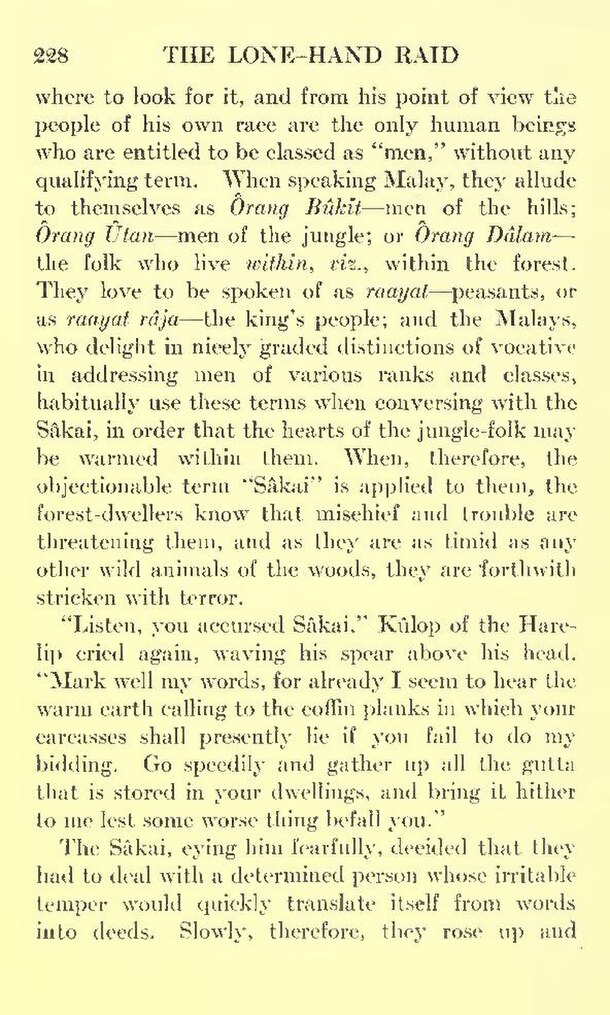where to look for it, and from his point of view the people of his own race are the only human beings who are entitled to be classed as "men," without any qualifying term. When speaking Malay, they allude to themselves as Ôrang Bûkit—men of the hills; Ôrang Ûtan—men of the jungle; or Ôrang Dâlam—the folk who live within, viz., within the forest. They love to be spoken of as raayat—peasants, or as raayat râja—the king's people; and the Malays, who delight in nieely graded distinctions of vocative in addressing men of various ranks and classes, habitually use these terms when conversing with the Sâkai, in order that the hearts of the jungle-folk may be warmed within them. When, therefore, the objectionable term "Sâkai" is applied to them, the forest-dwellers know that mischief and trouble are threatening them, and as they are as timid as any other wild animals of the woods, they are forthwith stricken with terror.
"Listen, you accursed Sâkai," Kûlop of the Harelip cried again, waving his spear above his head. "Mark well my words, for already I seem to hear the warm earth calling to the coffin planks in which your carcasses shall presently lie if you fail to do my bidding. Go speedily and gather up all the gutta that is stored in your dwellings, and bring it hither to me lest sonic worse thing befall you."
The Sâkai, eying him fearfully, decided that they had to deal with a determined person whose irritable temper would quickly translate itself from words into deeds. Slowly, therefore, they rose up and
